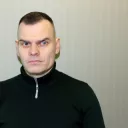Во светот каде што секојдневието честопати нè оддалечува од нашата природна состојба на мир и хармонија, верувам дека враќањето кон основите може да биде клучот за вистинско заздравување. Моето име е Цветко Георгиевски, и мојата страст кон терапијата произлегува од длабоката верба во исцелителната моќ на физичкиот допир, врската со природата и ослободувачката сила на танцот и движењето.
Во последните пет години, набљудував како градењето на врска со нашето физичко и околинско опкружување може значително да ја подобри нашата ментална благосостојба. Споделувањето на овој пат со моите клиенти, создавајќи безбедно пространство каде што можат да го истражат и прифатат своето вистинско јас, е нешто што ми носи огромно задоволство и исполнување.
Физичкиот допир, во контекст на терапија, може да служи како моќен канал за комуникација и исцелување. Тој ни овозможува да се поврземе на поинтимно ниво, поттикнувајќи чувство на безбедност и припадност. Како терапевт, секогаш сум тука да ви понудам потпора и разбирање, помагајќи ви да ги откриете и ослободите заглавените емоции што можеби ве спречуваат да го живеете вашиот живот најполно.
Еколошката психологија ми помага да ви покажам како вашата околина влијае врз вашето ментално здравје. Преку оваа перспектива, заедно можеме да најдеме начини како да ги искористиме елементите на природата за да создадеме позитивни промени во вашето расположение и општо здравје. Откривањето на вашата уникатна врска со околината може да биде катарзично искуство кое води кон подлабоко саморазбирање.
Терапијата преку танц и движење е нешто што ми е особено драго. Верувам дека телото и умот се неразделно поврзани, и дека преку слободно изразување преку танц, можеме да достигнеме степени на ослободување и разбирање кои се тешко достапни преку традиционални методи на разговор. Оваа форма на терапија ви овозможува да ги истражите и изразите вашите најдлабоки чувства на начин што зборовите едноставно не можат.
Со мене, ќе најдете партнер во вашето патување кон самопознавање и исцелување, некој кој ќе ви помогне да ги откриете своите внатрешни сили и да се вратите на патот кон целосноста. Дозволете ми да бидам дел од вашата трансформација, заедно да откриваме колку моќни навистина можете да бидете кога се поврзете со вашето тело, умот и околината.

